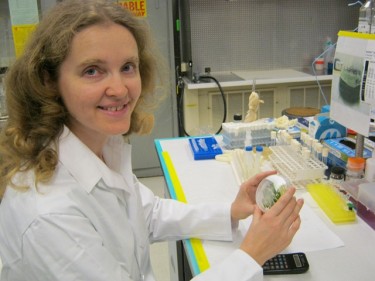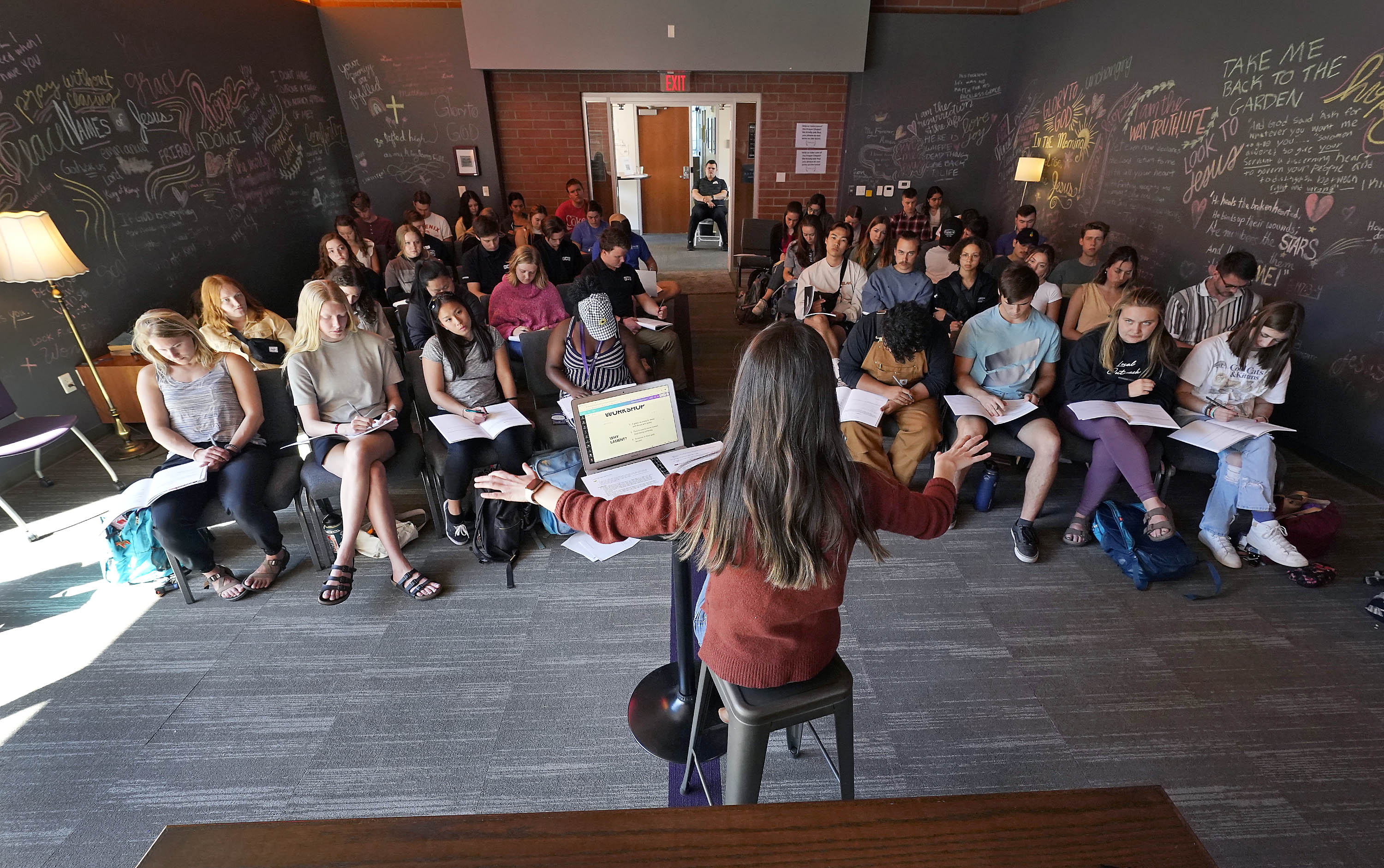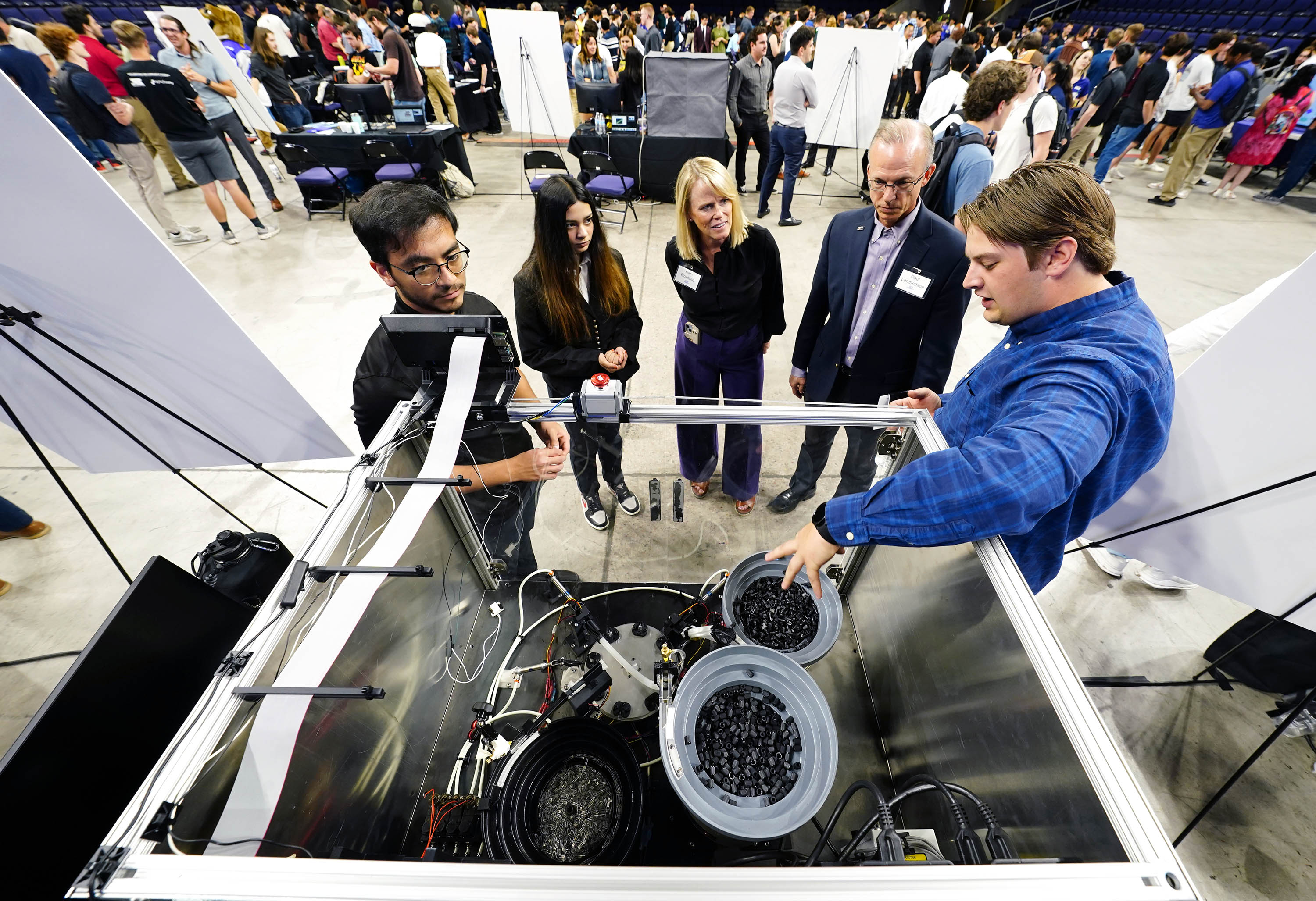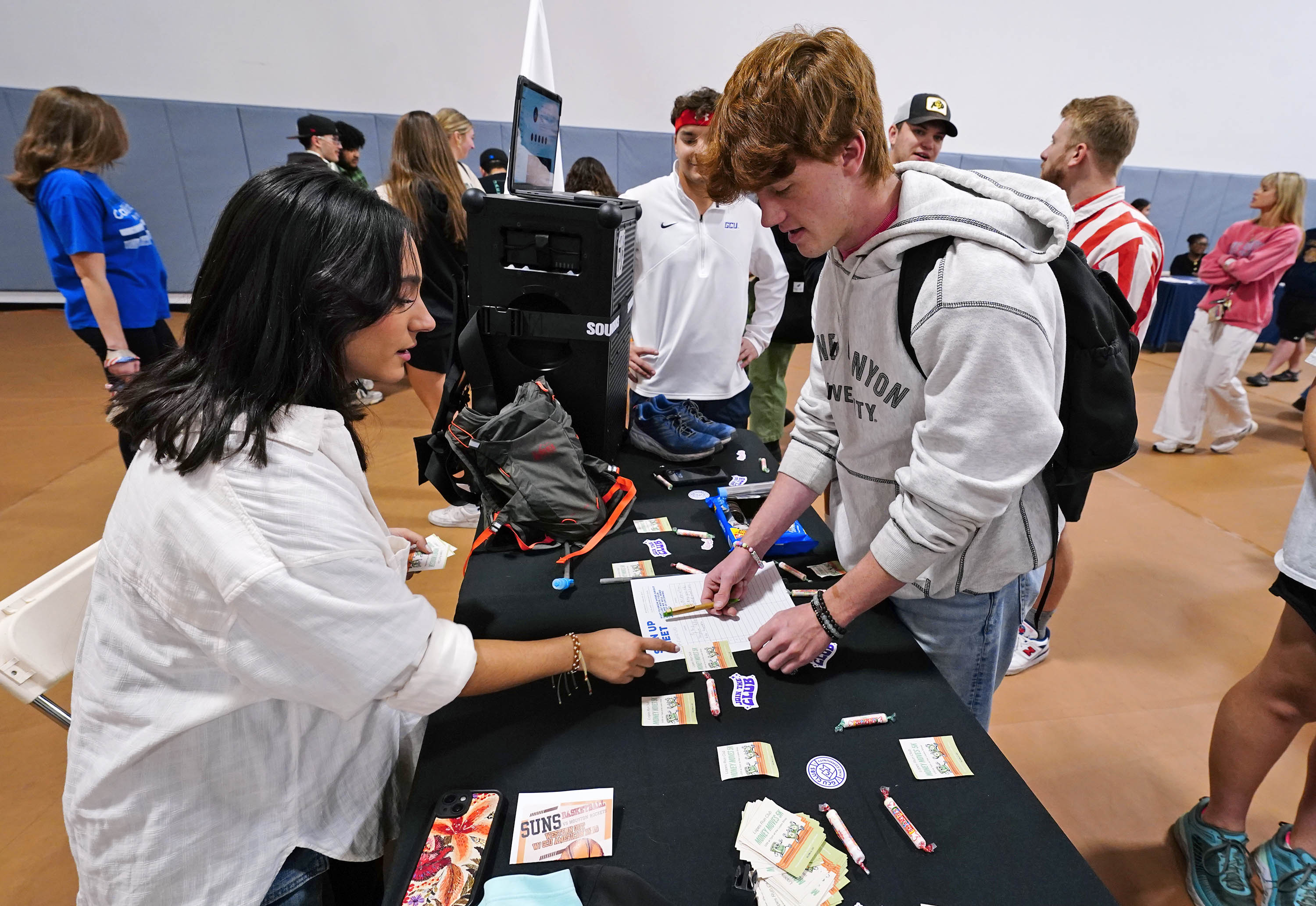By Michael Ferraresi
GCU News Bureau
When she’s not teaching, Dr. Galyna Kufryk spends her free time studying microscopic organisms that could be essential to solving some of the world’s energy problems.
The Ukrainian associate professor of biology and genetics at Grand Canyon University’s College of Arts and Sciences dedicates her research to cyanobacteria. She is an expert on cyanobacterial biochemistry and genetic engineering of the tiny green life-forms, which are found in everything from oceans to freshwater ponds to the rocky terra of the Sonoran desert.
Kufryk, who joined GCU in 2011, focuses her research on the manipulation of hydrogen-producing strains of cyanobacteria as a potential alternative fuel source. She is the only professor on the ground campus whose research relates primarily to renewable energy research.
Biohydrogen fuel is considered a cleaner alternative to fossil fuels. The U.S. Department of Energy and government consortiums in Europe have dedicated programs specifically to figure out how to harness hydrogen from fossils and renewable resources.
Kufryk said hydrogen generated by living organisms such as cyanobacteria could help reduce pollution, since the organisms only need sunlight for the energy to produce hydrogen naturally. The trick, she added, is figuring out the most efficient ways to speed up that hydrogen-production process and store the fuel in a manner that benefits mankind.
“The advantage of hydrogen is that we don’t produce CO2, or the gases that create the greenhouse effect,” said Kufryk, who is teaching five courses at CAS this semester — genetics, microbiology and general biology.
“It may not be the only solution, of course,” Kufryk said. “In all likelihood in the future we’re going to have multiple types of fuels that we’re using. But hydrogen definitely is beneficial, especially in the heavily polluted areas where we need to be really careful about how much C02 and byproducts of combustion we produce and release into the atmosphere.”
Kufryk is one of the more versatile science professors at GCU. She earned her doctorate in biology from the Ukrainian National Academy of Sciences in 1998. She conducted her post-doctoral studies at Arizona State University and taught at ASU, focusing on the molecular regulation of photosynthetic processes of cyanobacteria.
Since coming to GCU, she has spent summers collaborating with scientists in Europe. Last year, she lectured about cyanobacteria at the fifth Congress of European Microbiologists in Leipzig, Germany, before an audience that included scientists from more than 70 countries. This fall, she published an article about hydrogen production by cyanobacteria in the journal Advances in Microbiology.
While most CAS professors handle four or fewer courses, the college tapped Kufryk for a fifth this semester based on her breadth of science experience and ability to help students make sense of complex scientific topics.
“It’s a class where students can’t just sit back and fall asleep,” said College of Arts and Sciences Assistant Dean Dr. Mark Wireman, who recently observed Kufryk in a microbiology class. “She’s going to call on students and test them a bit.
“Just because you have a Ph.D. doesn’t make you a great teacher, though you might be an expert on the content. The first thing is they have to be an expert in their field. But more important, can they communicate the content to an undergraduate student? If you can’t do that, no one wins. But I think that’s what makes CAS so successful.”
In her ASU research, Kufryk and other scientists identified genes and proteins that related to cyanobacteria "light capture," and how the tiny organisms convert the light into energy. Those genes are now cataloged and annotated in a genetic databases.
There are thousands of strains of cyanobacteria, and sequenced genomes for hundreds. But of those hundreds, only about 40 have proved to have the natural ability to produce hydrogen gas. Researchers also investigate how to genetically modify those types to enhance or duplicate their hydrogen production.
“We basically need to identify the genes that are primarily responsible for increased hydrogen production,” Kufryk said. “If we manage to overexpress those genes, then we are hoping to get hydrogen production to the level where it’s commercially feasible to produce.”
Contact Michael Ferraresi at michael.ferraresi@gcu.edu.

























